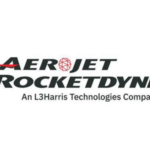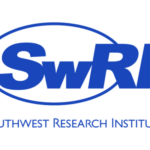Partner News
Orbital Celebrates 30th Anniversary of Company's Founding
Written by: developer
 Dulles, Va., (Apr. 2, 2012) – Orbital Sciences Corporation (NYSE: ORB) celebrated the company’s first three decades in the space business today as it completed 30 years of operations since the enterprise’s founding on April 2, 1982. At anniversary events at the company’s Dulles, Virginia headquarters and at other sites in Arizona, California, Maryland and Virginia, Orbital executives thanked employees and customers for making possible the company’s successes to date, and for providing exciting opportunities for future achievements.
Dulles, Va., (Apr. 2, 2012) – Orbital Sciences Corporation (NYSE: ORB) celebrated the company’s first three decades in the space business today as it completed 30 years of operations since the enterprise’s founding on April 2, 1982. At anniversary events at the company’s Dulles, Virginia headquarters and at other sites in Arizona, California, Maryland and Virginia, Orbital executives thanked employees and customers for making possible the company’s successes to date, and for providing exciting opportunities for future achievements.
“Reflecting on our first 30 years in business, Orbital’s Board of Directors and senior management team are deeply grateful to our customers for their confidence in our ability to carry out many of their critical space projects. We also want to offer our heartfelt thanks to the company’s employees and their families, whose creativity, dedication and sacrifices allowed us to fulfill our customer commitments while also building a strong foundation for future growth,” said Mr. David W. Thompson, Orbital’s Chairman and Chief Executive Officer.
From modest beginnings in 1982, Orbital has grown to over 3,700 people and approximately $1.5 billion in annual revenues expected in 2012. During the last 30 years, the company has generated cumulative revenues of approximately $14.8 billion, providing over 65,000 person-years of high-technology employment for its workforce.
Since its founding in 1982, the company has been among the space industry’s most active developers and manufacturers of launch vehicles and satellite systems. Its operational accomplishments during the past 30 years have involved conceiving, designing and building 1,007 rockets and space systems. This total includes 810 launch vehicles, target and sounding rockets, satellites and other space systems completed and delivered to date, plus another 197 rockets, satellites and related systems currently under contracts with customer deliveries scheduled from 2012 to 2018.
Technology Advances and Product Innovations
Orbital pioneered several significant space industry innovations during the last 30 years, including these important milestones:
- Development of the world’s first privately-funded space launch vehicle, culminating in the Pegasus rocket’s inaugural flight in 1990 and leading to sales of over 150 Pegasus and derivative launchers in the last 25 years
- Creation of the industry’s first modern microsatellites, involving the design, manufacturing and operation of more than 60 100-kilogram (or smaller) spacecraft for various customers and applications since 1985;
- Manufacturing and deployment of interceptor rockets as part of the United States’ first national missile defense system, which today protects over 300 million Americans, as well as our allies, from long-range missile attack;
- Design and production of over 30 scientific satellites for NASA and other research agencies, that are used to study the Earth, Sun and cosmos in frequency bands from radio waves and infrared through visible and ultra-violet to x-rays and gamma-rays;
- Conversion of the first U.S. solid-fuel ICBMs to be used as space launch vehicles and special-purpose R&D platforms, which have established a record of 23 consecutive successful flights in 12 years since the first Minotaur launch for the U.S. Air Force in 2000;
- Development and manufacturing of the industry’s leading small geosynchronous communications and broadcasting satellites in the late 1990’s, with 36 spacecraft having been sold to 17 commercial operators over the last 15 years; and
- Construction of the first two electric-propulsion planetary exploration spacecraft for NASA, the first of which rendezvoused with a comet in 2001 and the second of which is currently orbiting a main-belt asteroid.
Satellite and Launch Vehicle Manufacturing Experience
Orbital’s experience over its first 30 years includes design, development and manufacturing of 165 satellites and 40 major space systems for commercial, scientific and national defense customers. These 205 satellites and related systems are grouped as follows:
- 81 commercial communications, broadcasting and imaging satellites for operators in North and South America, Europe, Asia, Africa and Australia;
- 33 science spacecraft for government agencies, universities and research laboratories, used in Earth science, astrophysics and heliophysics research, and planetary exploration;
- 42 technology demonstration and operational satellites for national defense applications, including communications, weather monitoring, missile tracking and other missions;
- Nine autonomous rendezvous spacecraft to support expanded operations of the International Space Station (ISS) in a first-of-its-kind commercial cargo delivery program; and
- 40 space payloads and satellite subsystems for government and commercial customers, including equipment used on all Hubble Space Telescope servicing missions.
During that same 30-year period, the company has also designed and built, or now has under development and production, 802 launch vehicles, target missiles and sounding rockets, comprising four general categories of vehicles:
- 95 space launch vehicles and related systems, including the Pegasus, Taurus and Minotaur small-class space launchers and the company’s new Antares medium-class launch system;
- 70 interceptor launch vehicles for the U.S. national missile defense system, consisting of long-range boost vehicles for the Missile Defense Agency’s (MDA) Ground-based Midcourse Defense (GMD) program;
- 158 major target vehicles for missile defense testing and related experimental applications, covering a wide array of short-, medium-, intermediate- and long-range targets and countermeasure systems; and
- 479 smaller target missiles and scientific sounding rockets, including low-altitude supersonic ramjet-powered targets for the U.S. Navy and various high-altitude research rockets for NASA and university researchers.
Orbital’s constant focus on product safety and dependability has resulted in a 96.3% reliability record on the 434 major space missions (those with total value in excess of $5 million) it has conducted over the last 30 years, increasing to 97.7% on 172 major missions carried out by the company in the last 10 years.
Looking Forward
In the years ahead, the company’s space systems and launch vehicles will continue to be used by our customers in many mission-critical governmental and commercial applications, including the following:
- Today’s 54 operational company-built commercial communications satellites are expected to be joined by up to 10 additional satellites by mid-2014, providing enhanced TV broadcast, voice and data services to millions of customers in over 100 countries around the globe;
- In addition to 30 company-supplied long-range missile interceptor boosters currently deployed in Alaska and California, new GMD interceptors are planned to be produced for MDA to strengthen this vital element of the United States’ national missile defense system;
- Our 23 currently-operational science and defense satellites will continue their varied missions for NASA, the U.S. military and other customers, to be augmented by another 10 government-sponsored spacecraft during the next few years;
- With 10 launches of our new Antares rocket and nine Cygnus cargo spacecraft deployments planned over the next four years, Orbital expects to begin conducting regular logistics supply flights to the ISS in 2012;
- Later this year, the Orbital-developed Dawn deep-space exploration spacecraft will commence the second phase of its eight-year, multi-billion mile journey, as it completes a year-long up-close look at Vesta, the solar system’s second largest asteroid, and prepares to explore Ceres, the largest asteroid; and
- Some 90 “Coyote” supersonic ramjet targets, already delivered or now being built by the company, will continue to help the U.S. Navy and allied forces test and perfect defense systems for aircraft carriers and other naval vessels from advanced anti-ship missiles.
“As proud as I am of what Orbital’s people have achieved so far, I am convinced that the company’s greatest accomplishments are still to come. With the continued confidence of our customers and commitment of our employees, our adventure is just beginning,” Mr. Thompson concluded.
About Orbital
Orbital develops and manufactures small- and medium-class rockets and space systems for commercial, military and civil government customers. The company’s primary products are satellites and launch vehicles, including low-Earth orbit, geosynchronous-Earth orbit and planetary exploration spacecraft for communications, remote sensing, scientific and defense missions; human-rated space systems for Earth-orbit, lunar and other missions; ground- and air-launched rockets that delivery satellites into orbit; and missile defense systems that are used as interceptor and target vehicles. Orbital also provides satellite subsystems and space-related technical services to U.S. Government agencies and laboratories.
Forward Looking Statements
Certain statements in this press release may be forward-looking in nature or “forward-looking statements” as defined in the Private Securities Litigation Reform Act of 1995. These forward-looking statements include, but are not limited to, those related to our financial outlook, liquidity, goals, business strategy, projected plans and objectives of management for future operating results and forecasts of future events. These statements can be identified by the fact that they do not relate strictly to historical or current facts. Forward-looking statements often include the words “anticipate,” “forecast,” “expect,” “believe,” “should,” “will,” “intend,” “plan” and words of similar substance. Such forward-looking statements are subject to risks, trends and uncertainties that could cause the actual results or performance of the company to be materially different from the forward-looking statement. Uncertainty surrounding factors such as continued government support and funding for key space and defense programs, new product development programs, achievement of
important performance milestones on significant contracts, product performance and market acceptance of products and technologies, government contract procurement and termination risks and income tax rates, as well as other risk factors and business considerations described in the company’s SEC filings, including its annual report on Form 10-K, could impact Orbital’s actual financial and operational results. Orbital assumes no obligation for updating the information contained in this press release.
More information about Orbital can be found at http://www.orbital.com.
###
Contact:
Barron Beneski
(703) 406-5000
[email protected]


